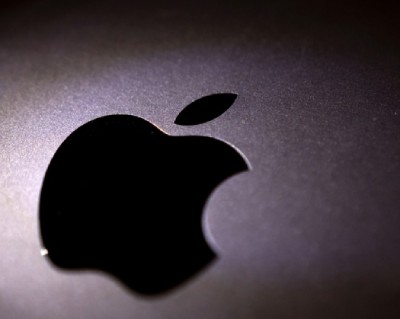SAN FRANCISCO Apple has officially joined the race to incorporate generative artificial intelligence into products, more than two years after OpenAI started the trend. During a presentation at its Silicon Valley campus, Apple announced its plans to introduce generative AI to over 1 billion iPhone users globally. This technology, known as Apple Intelligence, will enhance message prioritization, notifications, and writing tools for emails, notes, and text. Additionally, Siri, Apple's virtual assistant, will receive a significant upgrade.
By integrating AI into iPhones, Apple is taking a significant step towards making AI more accessible to consumers. As a leading name in Silicon Valley, Apple's endorsement of this technology could help legitimize AI, which has faced criticism for its potential errors and contribution to online misinformation.
Apple's introduction of AI features may also address concerns that the company was falling behind its competitors in the tech industry's AI advancements. Companies like Microsoft and Nvidia have seen significant growth due to their aggressive AI strategies, with Microsoft recently surpassing Apple as the world's most valuable technology company.
During its presentation of the new AI, Apple highlighted its commitment to privacy by explaining how the technology would be seamlessly integrated into its products. The company emphasized that the AI's capabilities, such as answering queries, generating images, and writing software code, would be utilized for sensitive tasks. Apple demonstrated how the system could intelligently assess whether rescheduling a meeting would conflict with attending a child's theater performance.
To prioritize user privacy, Apple disclosed that the AI's processing would take place on the iPhone itself, rather than in external data centers where personal information could be at a higher risk of compromise. Additionally, for more complex requests requiring additional computational power, Apple has established a cloud network using its own semiconductors. This network is designed to enhance privacy as it does not store or grant access to the data, not even to Apple.
To further enhance its AI capabilities, Apple collaborated with OpenAI, the creator of ChatGPT. In cases where Apple's system cannot handle certain requests, they will be redirected to ChatGPT. For instance, if a user needs assistance in planning a dinner using ingredients like salmon, lemon, and tomatoes, they can choose to direct their query to ChatGPT. It is important for users to understand that in such cases, the responsibility lies with the chatbot and not Apple if the answers provided are unsatisfactory. Notably, OpenAI CEO Sam Altman was present at the Apple event, signifying the collaboration between the two companies.
Apple's partnership with OpenAI, a company closely tied to Microsoft, highlights its position as a leading developer of AI technology in the tech industry.
CEO Tim Cook emphasized the importance of aligning new capabilities with the core principles of Apple's products, ensuring they are powerful, intuitive, and user-friendly.
In addition to this, Apple announced upcoming improvements to its iPhone software, including messaging enhancements, a redesigned Photos app, and the ability to send high-resolution images to Android devices.
Apple's strengths in the AI race include a highly skilled semiconductor development team that has been creating chips for AI functions for years. The company's focus on user privacy, as it generates revenue from device sales rather than advertising, sets it apart from competitors.
Apple's AI development may face challenges due to some weaknesses. The company's secretive nature has made it difficult to attract and retain top AI researchers, as it restricts the publication of research. Additionally, Apple has been cautious about licensing published material and has objected to unauthorized data collection, unlike other AI companies that use this data to enhance their technology.
Even though Siri has been in existence for over ten years, Apple has not made significant advancements in its voice assistant technology. Users have been disappointed by Siri's inability to understand various commands, and its conversational abilities are limited to following specific commands.
The integration of generative AI could potentially enhance Siri's capabilities, as it has been trained on real-life conversations extracted from podcasts and videos. This results in a system that can replicate human speech patterns.
Apple has stated that Siri will soon be able to retain the context of previous interactions with users. For instance, if a user asks about the weather in Muir Woods National Monument and later plans a hike there, Siri will remember the context of the conversation.
Siri is expanding its capabilities to better understand user needs within iPhone apps. For example, users can now request to see a specific photo of a friend, and Siri will locate and display the image from the Photos app. Additionally, Siri can assist with tasks like locating and filling out an image of a user's driver's license into a form.
Apple also showcased other AI features, such as automatically summarizing audio recordings, enabling customers to create movies from photos using descriptions, and enhancing photos by removing background distractions.
According to Gene Munster, a managing partner at Deepwater Asset Management, this development marks a significant moment for investors, comparable to the introduction of the iPhone. Companies must integrate AI into their products to remain competitive, and Apple's focus on making AI a core competency demonstrates their commitment to delivering the AI experiences that consumers desire.
The event marked a significant milestone in Apple's relationship with developers. Recent tensions have arisen between the company and app makers due to Apple's resistance to new regulations in Europe aimed at loosening its control over the App Store. These regulations mandate that Apple allow third-party payment options to bypass the 30% fee it charges on app sales. However, developers argue that Apple's proposed alternatives would make such a change financially unfeasible.
Apple is also encountering similar obstacles in the United States. A federal judge in San Jose, California, is currently deliberating whether Apple can implement a plan to levy a 27% fee on sales made through alternative payment systems. Additionally, the Justice Department has filed a lawsuit against Apple for its restrictions on cloud-streaming game apps, digital wallets, and other alternatives on iPhones.
Despite these challenges, Apple is highlighting the advantages it provides to developers. At the event, Apple showcased how its Apple Intelligence tools can enhance the functionality of apps for users.
Apple announced that it will be expanding sales of the Vision Pro, its mixed reality headset, to China, Japan, and Europe later this month. The company also introduced new features for the headset, such as the ability to view old photos in 3D and create a large virtual display for a Mac.













